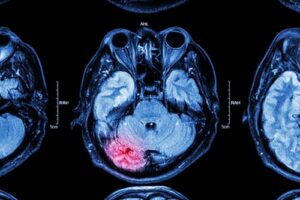A traumatic brain injury is a common accident-related injury that can have multiple long-lasting effects on many different areas of your life. People who endure a traumatic brain injury typically need ongoing and expensive medical care in order to make a full recovery.
In addition to physical injury, TBI victims often experience serious emotional and mental trauma as well. It is important for family members and close friends to ensure that TBI victims get the emotional support they need. Post-accident medical attention is crucial in avoiding serious complications brought on by a delayed diagnosis. Only a physician can properly diagnose a traumatic brain injury and recommend the appropriate treatment.
The Norfolk brain injury lawyers at Shapiro, Washburn & Sharp have a hard-earned reputation for helping TBI victims collect full financial compensation for their injuries.
What is a Traumatic Brain Injury?
A traumatic brain injury is usually the result of a blow to the head. They can be caused by car accidents, falls, fights, sports injuries, explosions, and gunshot wounds. Many of our nation’s veterans who saw combat are currently living with TBI.
Brain injuries fall under one of two categories: primary or secondary. With traumatic brain injury, the primary injury occurs during the initial trauma and is caused by the displacement of the brain’s physical structures. Secondary brain injury refers to the degradation of brain tissue that takes place over time. Brain injuries can have numerous repercussions, including problems with:
- Motor Skills: Signs include loss of balance, paralysis, weakness, tremors, and diminished coordination.
- Cognitive Skills: Some common symptoms are decreased attention span, general confusion, slurred speech, and memory loss.
- Perception: Signs include increased or decreased sensation in parts of the body as well as changes in hearing, vision, smell, touch, or taste.
- Basic Functions: These involve an impaired ability to perform routine tasks such as getting dressed, driving a car, bathing, and going to the bathroom.
- Psychological: Symptoms are comprised of major mood swings for no discernable reason, apathy, anxiety, irritability, notable personality changes, depression, and unusually aggressive behavior.
- Social: Signs include difficulties maintaining relationships and problems identifying the subtleties in personal interactions.
What Are the Emotional Effects of a Traumatic Brain Injury?
Living with a traumatic brain injury is frustrating not only for victims but the people they love as well. Many of their day-to-day obligations become more challenging or even impossible to accomplish. In some instances, a person suffering from a TBI will not be able to return to work or may be forced to seek a less-demanding job in an entirely different field.
It is not uncommon for those with TBI to experience a litany of problems that compound their symptoms. For instance, the cognitive and personality changes a TBI victim endures could increase their level of anxiety. For military veterans and victims who were severely traumatized by their accident, anxiety may be exacerbated by post-traumatic stress disorder. People who have PTSD undergo flashbacks and night terrors that result in serious emotional distress.
Depression is another common symptom of traumatic brain injury. People who are depressed often feel hopeless and sad. They tend to lose interest in activities they once loved, have a hard time falling or staying asleep, feel sluggish, and self-isolate from those closest to them. Drastic mood swings are also an unfortunate side effect. Someone with TBI might laugh during an inappropriate situation, or they could be enjoying themselves and having a good time when they suddenly begin yelling or crying for no apparent reason.
Who Can Help With the Long-Term Consequences of a Traumatic Brain Injury?

More than anything, victims suffering from the negative long-term impacts of TBI need the support of their loved ones. It isn’t going to be easy, but no matter how much they insist they don’t need it, it is important for family members to stick by them and ensure they get the professional help they need.
The amount of help that is necessary to successfully recover from the emotional and physical trauma of a TBI usually requires a team of professionals. Some of these may include:
- Psychologist/Psychiatrist
- Neurologist
- Caseworker
- Physical therapist/Rehabilitative nurse
- Occupational therapist
- Nutritionist
- Minister
Did a Virginia Accident Cause Your Traumatic Brain Injury?
If you or a family member are struggling with the long-term consequences of a traumatic brain injury caused by an accident, our Norfolk personal injury lawyers are here to help. After decades of practicing personal injury law in Virginia, we know what it takes to get you the settlement you deserve.
If you sustained a TBI or other catastrophic injury due to someone’s negligence, call the law offices of Shapiro, Washburn & Sharp at (833) 997-1774 and schedule your free consultation as soon as possible.
